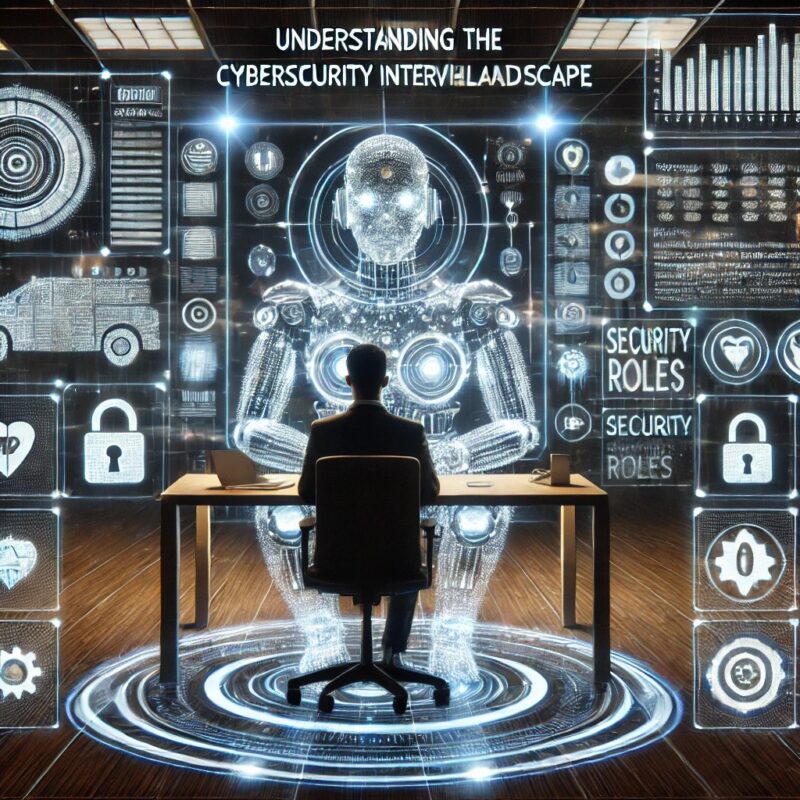Today, I engaged with an in-depth exploration of breaking into the field of cybersecurity, presented through a conversational yet highly instructive format. The material was delivered by a seasoned professional with extensive industry experience, having conducted and undergone over one thousand cybersecurity interviews. This unique vantage point shed light on the challenges, expectations, and pathways within this complex field.
Understanding the Cybersecurity Interview Landscape

The initial emphasis of the discussion was on cybersecurity interviews—commonly perceived as difficult and high-pressure experiences. The speaker candidly acknowledged their own struggles and missteps during interviews, providing a reassuring reminder that no career path is without its challenges.
The concept of “failing forward” resonated strongly, demonstrating how setbacks, while disheartening, can catalyze growth and refinement. The speaker emphasized the importance of reflecting on mistakes and using them as learning opportunities to improve subsequent performances. This sentiment reinforces that resilience and adaptability are key traits for aspiring professionals.
In addition to sharing personal anecdotes, the speaker offered a range of practical tips. Preparation was identified as a critical component, including deep research into prospective companies, honing technical skills, and preparing for scenario-based questions. The advice was straightforward: treat each interview as a learning experience, remain adaptable, and don’t fear making mistakes, as they can often reveal areas of improvement.
Navigating the Cybersecurity Job Market

Transitioning from interviews, the discussion expanded into a broader analysis of the cybersecurity job market. The speaker described the landscape in terms of roles, growth trajectories, and industry trends. I was struck by the wide range of roles available in cybersecurity, including penetration testing, security analysis, threat intelligence, and incident response. This diversity provides ample opportunities to find a niche aligned with personal skills and interests.
Moreover, the speaker highlighted the dynamic nature of the field. Technology evolves rapidly, meaning the skills and knowledge required today may change tomorrow. Staying current and relevant demands continuous learning, certifications, and engagement with the latest industry developments. The need to remain versatile is both a challenge and a rewarding aspect of working in cybersecurity.
A recurring theme was the demographic and statistical realities of the industry, illustrating the competitiveness and increasing demand for skilled professionals. By understanding these trends, aspiring practitioners can better position themselves in the market and align their skills with high-demand areas.
Building a Strong Professional Brand
In today’s digital age, personal branding is a critical aspect of career success. The speaker devoted considerable time to discussing the value of building and maintaining an effective online presence, especially on professional networking platforms like LinkedIn. The key takeaway was that creating a compelling personal brand requires more than simply listing skills and certifications—it involves sharing insights, engaging with industry discussions, and demonstrating a genuine passion for cybersecurity.
Practical tips included optimizing one’s LinkedIn profile with a professional photo, crafting a compelling headline, and poviding detailed descriptions of experience and achievements. The speaker encouraged sharing content, such as blog posts, thought leadership pieces, or commentary on emerging trends, to showcase expertise and stay visible within the cybersecurity community.
Equally important was the need to network. Attending conferences, joining forums, and connecting with professionals in the field can lead to mentorship opportunities, collaborations, and job prospects. Networking was framed not merely as a transactional activity but as a way to build authentic, mutually beneficial relationships.
Learning from Mistakes and Continuous Improvement
The speaker’s candid recounting of their own career journey was both inspiring and grounding. They spoke of the numerous missteps and rejections they faced, yet these setbacks became stepping stones toward growth. It was a reminder that everyone’s path is different, and no one achieves success without facing difficulties along the way. By viewing mistakes as valuable lessons and opportunities for reflection, we can better ourselves and move forward with renewed determination.
Continuous improvement was a central theme. The speaker underscored the importance of staying ahead of the curve by investing in education, earning relevant certifications, and engaging with professional development resources. This proactive approach ensures that one remains competitive in a field that is constantly evolving. Additionally, the speaker highlighted the value of mentorship and seeking guidance from those with more experience, as they can offer insights and advice that accelerate professional growth.
The Human Element: Empathy and Communication

While technical skills are indispensable in cybersecurity, the speaker emphasized that soft skills—particularly communication, empathy, and problem-solving—are equally critical. Cybersecurity professionals often work in teams, interact with diverse stakeholders, and need to convey complex information in a digestible manner. The ability to communicate effectively and demonstrate empathy when addressing user concerns or handling incidents can make a significant impact.
During interviews, showcasing these qualities can set candidates apart. For example, articulating how one would approach a real-world problem, taking into account technical constraints and user needs, demonstrates both competence and consideration for others.
Words of Encouragement and Closing Reflections
As the session concluded, the speaker offered words of encouragement, stressing that while breaking into cybersecurity may seem daunting, the journey is immensely rewarding for those willing to persevere. Their closing message was clear: success requires hard work, continuous learning, and an unwavering commitment to growth, but the rewards—a dynamic career, opportunities to make a positive impact, and the thrill of solving challenging problems—are well worth the effort.
Reflecting on the insights shared, I feel a renewed sense of motivation to continue my own journey in cybersecurity. This field demands resilience, adaptability, and a passion for learning. By embracing these values, I am confident that I can navigate the challenges and emerge stronger.


